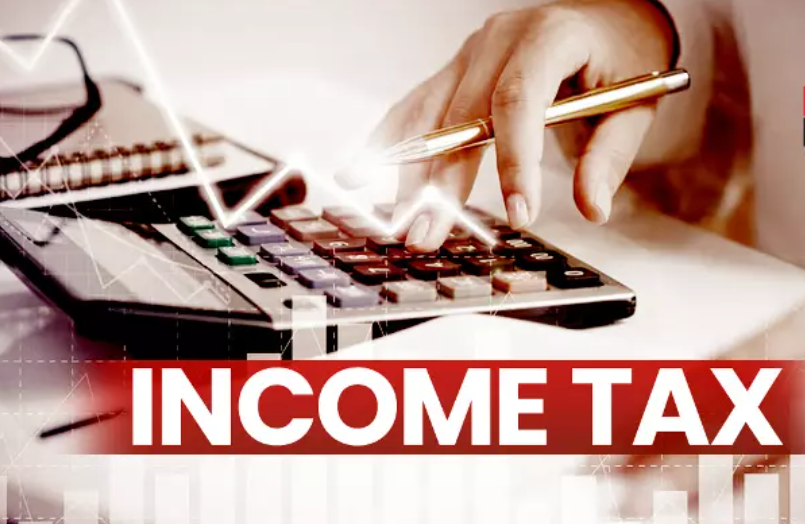India’s Tax System Overhaul: What Comes Next, Explained
India’s taxation system is quickly changing and it will affect individuals of all stripes, from students saving up pocket money to business owners running companies. Top tax lawyers and financial experts across India are watching with anticipation as the government rolls out new technology, simplifies old rules and makes new policies. If you’re curious about what the shape of future taxes might be, look no further. This article dissects all that experts are foreseeing about the future of Indian taxation in simple words.
Why Indian Taxes Matter Now
Before we think about the future, let’s make sense of why things are changing. Rapidly growing economy of India, people are starting business at a pace like never before, earning from multiple sources. Our outdated tax system was created decades ago and is simply not designed to keep up with digital payments, cryptocurrency, international income or—especially—e-commerce.
The government netted more than ₹27 lakh crore in taxes in 2023-24, but experts said that figure could double over the next 10 years if a much simpler and efficient tax structure is put in place. Three main forces are motivating change, according to legal experts: adoption of technology, international pressure for tax standardization and the necessity to bring more people into the tax net.
Digital Revolution in Tax Collection
Remember when there used to be long lines at tax offices with paper files lined up? Those days are ending. Tax experts say that within five years, nearly everything to do with taxes will be automated for computers and mobile phones. The Income Tax Department has started leveraging artificial intelligence to scrutinize tax returns and nab assessees who have made mistakes.
Real Example: In 2024, the government rolled out a system that fills your tax return in for you with the information from your bank, employer and others. All you have to do is check and file. Experts say this will be how everyone files taxes as early as 2027.
GST: What Comes Next
The Goods and Services Tax (GST) came into effect in 2017, replacing a number of older taxes. It simplified things, but experts say GST needs further improvement. Here’s what legal professionals expect:
Fewer Tax Slabs Coming Soon
As things stand now, it has multiple rates—0%, 5%, 12%, 18% and 28%. The consensus among tax lawyers is that the government will bring it down to just three slabs—5%, 12% and 18%—making calculations easier for all. Such a shift could occur by 2026-27.
| Item Category | Current GST Rate | Expected Future Rate |
|---|---|---|
| Essential goods (rice, wheat) | 0-5% | 0-5% |
| Daily use items (soap, toothpaste) | 12-18% | 12% |
| Electronics, clothes & etc. | 18% | 18% |
| Luxury items (cars, AC) | 28% | 18% with special cess |
For expert guidance on GST compliance and taxation matters, professional legal consultation can help navigate these upcoming changes.
Easier Compliance for Small Businesses
Small shop keepers and vendors often face a hard time with the paperwork of GST. A new regime, experts say, will now allow businesses which have an annual turnover of less than ₹1 crore to file their taxes once every three months rather than once monthly. In most states, those who earn less than ₹40 lakh will not have to register for GST at all.
Income Tax: Big Changes Ahead
Income tax is levied on salary, professional or business income—on the individual directly. Legal experts detail several big changes that are on the horizon in this space.
Simpler Tax Slabs for Everyone
Currently, taxpayers have the option to file under the old tax system (with deductions) or the new one (with lower rates, but fewer deductions). Experts expect the government will retain only one simplified system by 2028. That means everyone will be playing by the same rules without confusion.
Expert Speak: New Delhi’s senior tax counsel Rajesh Kumar says, “The parallel systems are confusing. Most places in the world have one simplified tax regime, and India will gravitate in that direction. The government is seeking to do away with all deductions and provide low, flat rates instead.”
Higher Tax-Free Income Limit
Now, income up to ₹3 lakh is exempt from tax under new regime. Tax consultants predict this threshold would rise to ₹5 lakh by 2026, and more individuals will end up paying nil tax. It enables families to cope with the increased cost of food, education and health care.
Projected Income Triggers for Tax-Free Withdrawals (By Year)
- 2024 (Current): ₹3 Lakh
- 2026 (Predicted): ₹5 Lakh
- 2030 (Expert Estimate): ₹7 Lakh
Cryptocurrency and Digital Assets Taxation
Cryptocurrencies including Bitcoin and Ethereum are becoming mainstream investments. The government already charges a 30% tax on crypto profits and a 1% TDS (Tax Deducted at Source) on transactions. But experts say comprehensive regulations are still in the works.
What Legal Experts Predict
Tax lawyers expect India will bring in specific laws that define cryptocurrencies as currency or property. What it depends on is how they’re taxed. Most experts assume that, eventually, crypto will be treated more like stocks or mutual funds—with lower tax rates for those held long term.
For more information on cryptocurrency regulations, refer to the Income Tax Department’s official guidance.
Example: Mumbai-based tax consultant Priya Sharma says, “Currently, when you buy crypto worth ₹1 lakh and sell for ₹2 lakh—you pay a tax of ₹30,000. It may be even lower in the future, say ₹15,000 if you hold it for more than a year—like long-term capital gains on stocks.”

International Taxation and Global Income
More Indians work for foreign companies, freelance for international clients or hold overseas investments. This creates complex tax situations. India to tighten rules on overseas income, experts say.
Automatic Information Exchange
India has signed deals to automatically receive financial information from more than 100 countries. The Indian government would know if you had a bank account, a piece of property or a business abroad. It will be nearly impossible to evade taxes.
Important News: From 2025 onward, the account information of Indian residents will be provided to Income Tax by all banks across the globe. This is in adherence to part of the Common Reporting Standard (CRS) that India adheres to.
Lower Rates for Returning Indians
Legal experts say the government is exploring special low tax rates for Indians who had lived overseas and wished to return home permanently. This could provide a window of only 10-15% tax for five years to woo the best professionals to return and invest in India.
Tax Incentives for Growth Sectors
The government is seeking to support specific industries. Tax specialists explain which industries will receive favorable treatment in years ahead.
Electric Vehicles and Green Energy
This means that firms producing electric vehicles, solar panels, and batteries would get a full tax holiday (0% tax) for as much as 10 years. Even those purchasing electric cars can avail deductions up to ₹1.5 lakh on loan interest.
Startups and Innovation
The government charges no tax for three years of the first decade of startup companies. Widening this to five tax-free years is expected soon, which at least makes India that much more appealing for entrepreneurs.
Manufacturing and Production
According to the “Make in India” campaign, manufacturers can enjoy lower taxation of 15% (as opposed to the traditional 25-30%) corporate tax rates. Lawyers anticipate that the benefit will last for at least another 10 years, with potential extensions into additional fields.
| Sector | Current Tax Benefit | Expected by 2030 |
|---|---|---|
| Startups | 3 years tax holiday | 5 years tax holiday |
| Manufacturing | Corporate tax reduced to 15% | Corporate tax reduced to 12% |
| Green Energy | Multiple deductions | Tax holiday for up to 10 years |
| Research & Development | Weighted deductions (150%-200%) | Enhanced incentives, grants and subsidies |
Technology Making Tax Easier
Artificial Intelligence and machine learning are changing the way taxes operate in India. Here’s what’s changing:
Pre-Filled Tax Returns
There would already be your form on salary, interest from the bank, how much you have paid for house rent, insurance premium and investment (mutual fund). Just save the details, check and submit. No more scrambling to sign dozens of documents.
Instant Tax Refunds
Getting a tax refund is currently a weeks- or months-long process. New systems will process refunds within 24 hours after filing returns, experts said. The deposit will be paid directly into your bank account via electronic transfer.
AI-Powered Tax Assistants
The Income Tax Department is building chatbots to answer tax questions, assist in filing returns and resolve issues—all available in Hindi as well as English, and even regional languages. The chatbots, which are virtual and available for consumers around the clock, will exist on websites and mobile applications.
-
📖 Understand constitutional boundaries of taxation: Understanding Constitutional Limits on Taxation in India
Changes in Property and Real Estate Taxation
There are several taxes when you buy and sell property. It is expected that there will be a lot of rationalization on this front, legal experts predict.
Single Property Tax System
At the moment, a property transaction includes payment of stamp duty, registration charges, capital gains tax and local taxes—however each is calculated differently. States are shifting toward one unified property tax levied once and then automatically spread among their jurisdictions, experts say.
Lower Capital Gains Tax
You pay long-term capital gains tax when you sell a house and it has been more than two years since you bought it. The existing rate is 20% with indexation benefit. Tax consultants estimate this could come down to 15% so as to boost property investment and make housing affordable.
Challenges Experts Worry About
While the legal community predicts positive changes, it also points out potential issues:
Privacy Concerns
If there’s more digital surveillance, the government knows everything about your income and spending. Some experts are also concerned about data security, and how the information could be misused.
Small Businesses Struggling with Technology
Smartphones and internet access are not universal. Small village vendors might struggle to transition to entirely digital tax systems. The government needs to train and support them, experts say.
Frequent Rule Changes
The budget is implemented each year, and so the tax laws change every year with the budget. Businesspeople and taxpayers are struggling to keep pace. Instead, lawyers say there needs to be more consistent long-term policies that are not in constant flux.
What This Means for Ordinary Citizens
Let’s make this practical. How will the changes impact your daily life?
For Salaried Employees
This will lower tax return filing to the ease of checking WhatsApp messages. Your employer, bank and insurance company will pass on the information to the tax department. You’ll simply tap to approve the pre-populated form on your phone. Refunds will come faster and you’ll owe less in tax if income limits rise as anticipated.
For Students and First-Time Earners
If you start earning in freelancing, YouTube or part-time jobs, filing tax is really easy. Low income earners will not have complicated paperwork to fill out. With the ₹5 lakh tax-free threshold, quite a lot of students and young professionals will pay no tax to begin with.
For Business Owners
The number of slabs on the goods and services tax will be less, making it easier for calculation. Filings could go from monthly to quarterly for small businesses. Refunds and input tax credits will be automatic with the help of software. Clarity around digital payments and online sales will be beneficial for e-commerce businesses.
For Senior Citizens
Simplified returns and pre-filled returns will make it easier for older citizens who are uncomfortable with technology. Additional tax-free quotas for the pension income and the interest would bring some financial relief. Senior citizens can be assisted by family members in filing returns in a more simplified manner.
Frequently Asked Questions (FAQ)
Q1: Will taxes be higher or lower in future?
The consensus among analysts is that tax rates will step down over time for both individuals and small businesses, as the government concentrates more on expanding the taxpayer pool than it does on raising rates. Corporate tax is likely to be maintained or cut slightly in line with global norms.
Q2: What will be the tax treatment of cryptocurrency five years down the road?
Many legal experts believe crypto will be treated much like stocks are taxed at separate rates for short-term (higher) and long-term (lower) holdings. That 30% flat rate would probably be replaced with a tiered system depending on the length you’ve held the security; say 15-20% for long-term crypto holdings.
Q3: Can I file without a CA or tax expert in the future?
Yes, absolutely. Between pre-filled returns and AI assistants, most salaried individuals and small business owners won’t need an accountant. But complicated scenarios with various sources of income, international earnings or big business ownership will still do better with professional help from firms like Zista Legalis.
Q4: What if I have foreign income?
India is tightening international tax pacts. You are required to declare all your income worldwide and India will get information from other countries automatically. But you can take tax credits for taxes paid overseas, to prevent double taxation. There could be targeted lower rates for certain categories of foreign income.
Q5: Will GST become simpler?
Experts unanimously believe GST would become easier. Five slabs would come down to three main rates. Small businesses will have to file with less frequency, and most of the process is going to be automated. Returns would be pre-filled using the sales and purchase data that GST network obtained through returns filed by both suppliers and recipients, which will now need just the verification from business owners.
Q6: When will I receive tax refunds?
The current target is 24 hours for straightforward returns to be refunded. Most taxpayers will get refunds within one or two days of filing by 2026-27, experts predict, directly into their bank accounts thanks to automation checking.
Q7: Will property taxes decrease?
The rate of levy on capital gains through property may drop from 20% to 15%, for long-term holdings. Stamp duty to be standardized across states. With digitization of land records and elimination of black money in real estate, the total tax on property transactions is likely to reduce.
Q8: What about tax breaks for electric vehicle buyers?
At present you can claim deduction of up to ₹1.5 lakh on interest on EV loan. Experts forecast this to go up to ₹2-2.5 lakh by 2026. More widely, investors in charging infrastructure and manufacturers of EV will receive tax holidays for extended periods, making electric vehicles cheaper overall.

Wrapping It All Up
India’s tax regime is moving from being complicated and paper-heavy to being simple and digital. Legal experts concur that technology, international cooperation and government will to simplify tax will completely transform taxation in the next five to ten years.
Individuals are likely to see lower tax rates, a simple GST structure and automated tax filing, instant refunds and special benefits for growth sectors like startups as well as manufacturing and green energy. There are challenges—notably around privacy and the need to familiarize people with technology—but overall it’s a good direction.
Whether you are a student, salaried employee, business owner or retiree, these changes will help make tax compliance simpler and less stressful. The trick is to keep abreast of any new developments, have the right record keeping in place and adapt to digital solutions as they come online.
Remember that taxes pay for schools, hospitals, roads and other things we all rely on. A simpler, fairer tax system is good for everyone and helps India compete in the global economy as a modern, developed nation. The future of Indian taxation is not merely about the revenue it can generate—it’s about establishing a transparent and efficient system that respects the time of taxpayers, making compliance easy.
Expert Advice: Keep digital records of all income and expenses, link PAN with Aadhaar, get familiar with the Income Tax e-filing portal. The future is digital, and you’ll save time and money being prepared when new systems are launched.





